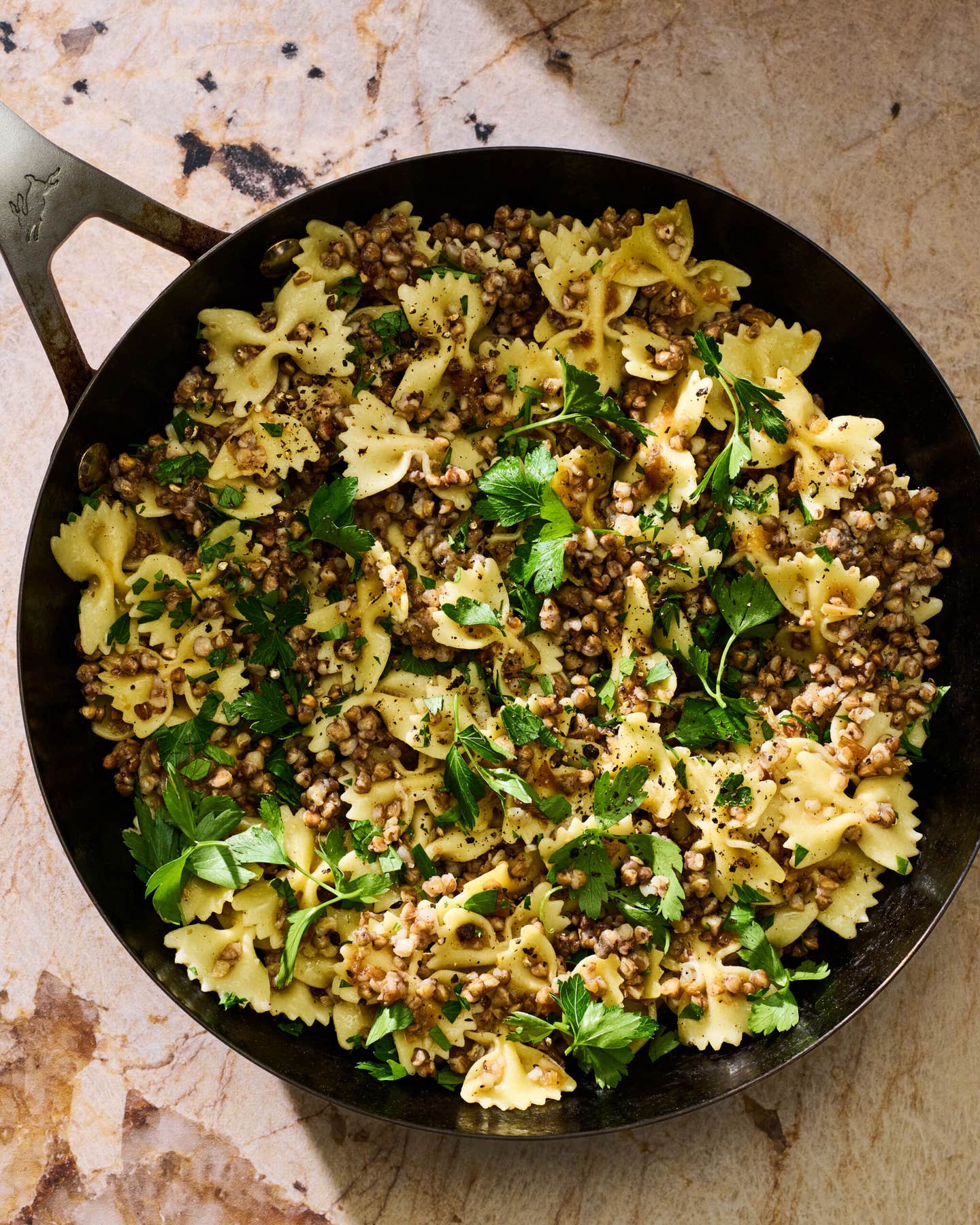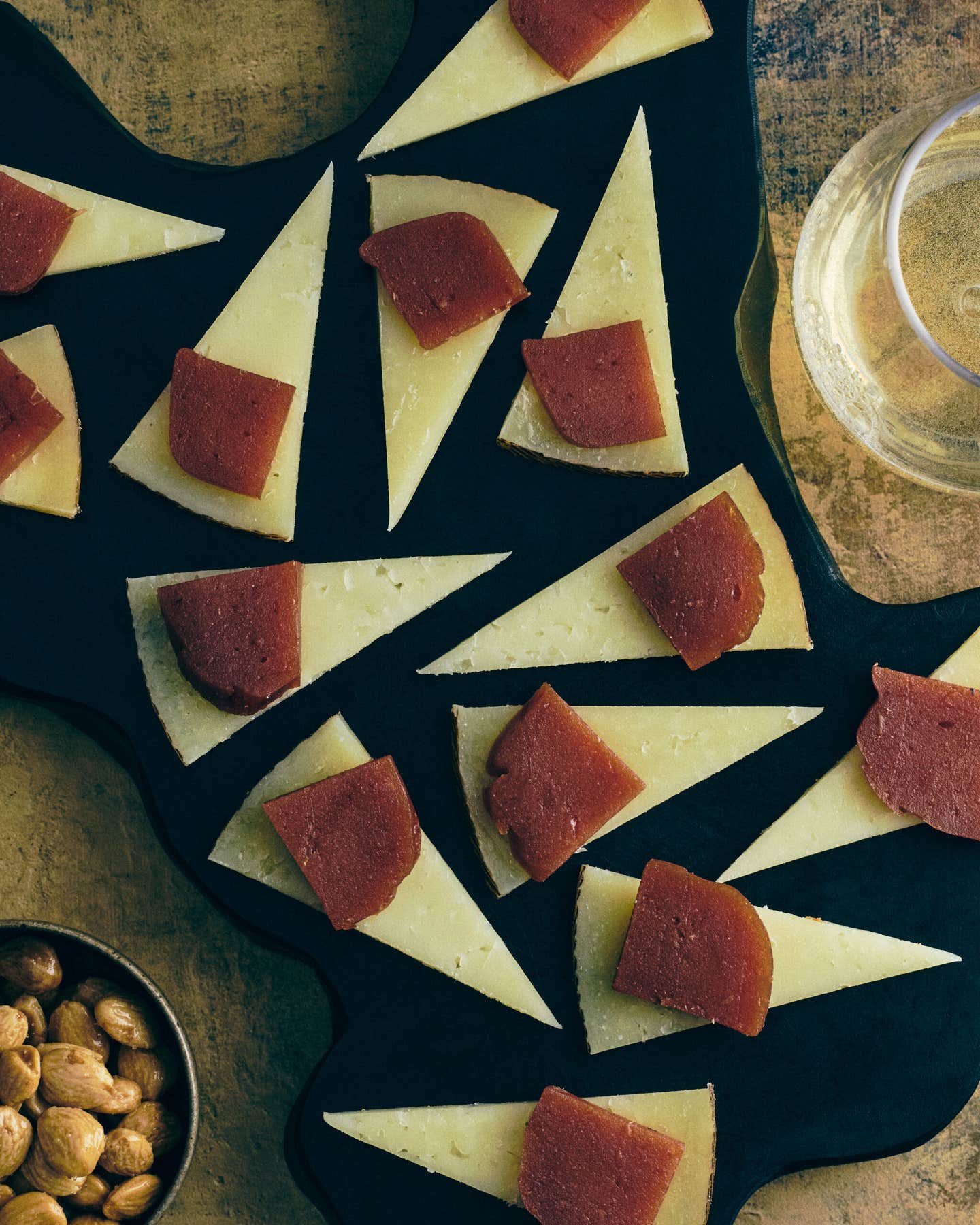
Learning to Love a Ukrainian Chicken Liver Pie
An NYC-based author shares how he fell in love with this surprisingly delicious Soviet staple
The first time Oksana Zagriychuk slid a slice of chicken liver “pie” before me, I said: “Where’s the chicken liver?” We were at the square dining table in her small kitchen in Ivano-Frankivsk, a mid-sized city of 250,000 in the foothills of the Carpathian Mountains in western Ukraine. I had followed her there in March 2013 because she had been looking after my grandfather in Brooklyn for nearly a decade, and the things she conjured in his small galley kitchen were so magnificent—familiar from my own family’s ex-Soviet cooking, but inflected by the nearly Mediterranean bounty of western Ukraine—that they overpowered even the family resentments that had me drifting away from my people and culture when she arrived in his life.

For a while then, I was at my grandfather’s table quite often, and if he was wrong about why, I saw no reason to correct him, only say a silent thanks to Oksana’s kitchen sorcery: cornmeal braised in sour cream and milk and served with wild mushrooms and sheep-milk feta; pickled watermelon; duck stuffed with apples and dried apricots; roast peppers marinated in buckwheat honey and garlic; wafer torte with condensed milk and rum extract. Eventually, I became curious enough that I asked if I could look over her shoulder as she worked it all out. And then one day, I just blurted it out: Could I come with her when she went back to Ukraine for her annual home leave?
Ukraine is so fertile that "you plant a stick in Ukrainian soil, and you'll get ten sticks the next day," as a saying there goes. Its cuisine, as I write in my new book Savage Feast: Three Generations, Two Continents, and a Dinner Table, is "more of pots than pans, of time rather than flavor-bomb spices, of ingenuity rather than flash." That ingenuity brings you to some unexpected places, and now that our three-stopover, 36-hour odyssey from JFK was complete, Oksana must have decided it was time to break out the hardcore-local repertoire.

I'm not a shy eater, but I sawed off no more than a cautious corner of this pie slice with my fork. Tasting it was actually not unlike one of those molecular-gastronomy head games, where the thing on your plate has the shape of a pepper but it's actually made of ice cream. It was a pie—a pie that tasted indelibly of chicken liver. To enjoy it certainly requires a taste for chicken liver, but if you have that, as I did and do, the combination—chicken liver in a crêpelike batter, mayonnaise, garlic, and dill (always dill)—was so euphorically flavorful that I swallowed that slice and one more before I noticed Oksana's bemused expression.
Like so many Soviet dishes, this one was born of necessity, and exemplifies one of my favorite things about Soviet cooking: It was nose-to-tail long before Fergus Henderson started thinking about making salads out of roasted bone marrow. Ivano-Frankivsk had a poultry factory, though due to the vagaries of a command economy, most of it was exported to other parts of the USSR. Only the “sub-products”—gizzards, chicken feet, and the like—stayed behind, plentiful and cheap. The ingenuity of local housewives turned this “refuse” into a savory pie. Why a pie? “Because a pie means a holiday,” as Oksana says. That feeling went a long way in Soviet Ukraine. Since pagan times, circle-shaped breads and pies have crowned Slavic celebrations because they symbolize the life-giving sun.

The chicken livers are ground to a paste along with an onion, and then add the usual ingredients for crêpes: eggs, flour, oil. Oksana is a crêpe Rembrandt—even though her batter is always more delicate than mine, once the crêpe begins to crisp up, she “draws” with a wooden skewer so deftly around its edges in order to separate it from the pan that it almost never tears on the flip. (If it does, she patches it up with a little extra batter. “A little batter hides all our sins,” as she likes to say.) A stack of her liver crêpes looks like a geometry lesson; mine like a giant, unwieldy mushroom. But no matter how it looks, it’s so surprisingly good, you’ll forget how to share. But heed Oksana’s warning: “You won’t be kissing anyone after.”
Boris Fishman is a New York City–based novelist and the author of Savage Feast: Three Generations, Two Continents, and a Dinner Table (HarperCollins), published February 2019.
Keep Reading
Continue to Next Story










